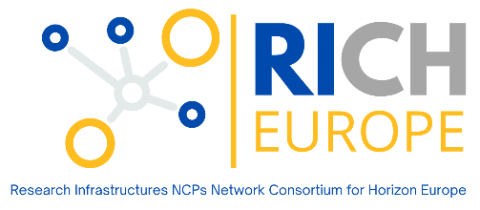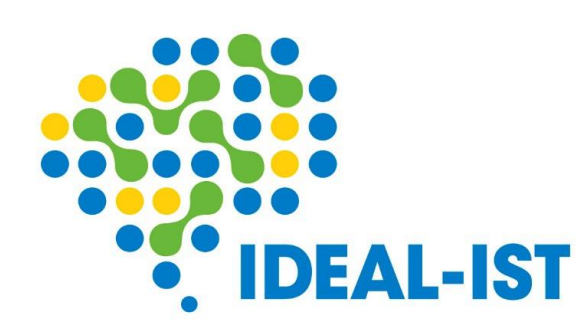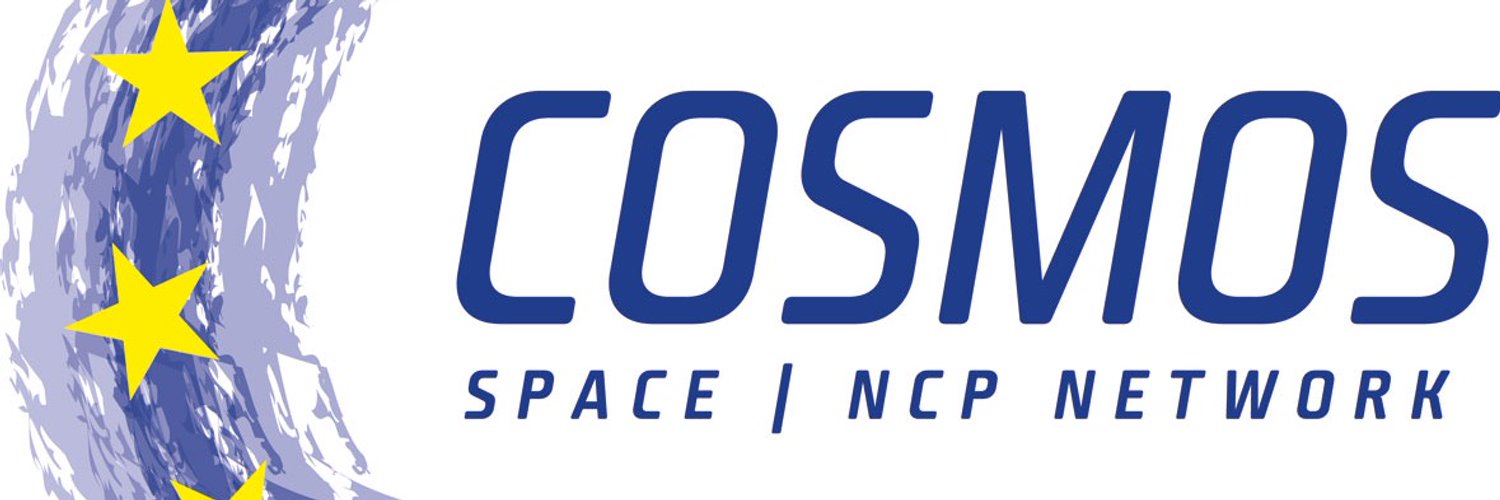
Horizon Europe is the EU’s key funding programme for Research & Innovation with a budget of €95.5 billion. It will run from 2021 to 2027. The latest work programmes for 2023-2024 were published in November 2022.
The vast majority of this funding is allocated on the basis of competitive calls open to applications from researchers, businesses and other interested organisations located in any of the EU Member States or Associated Countries to Horizon Europe as well as partners from all over the world.
Institutions from third countries (including Latin American and Caribbean countries) can join most of Horizon Europe calls as part of a consortium comprised of:
at least 1 partner from an EU member state and
at least 2 additional partners from 2 other different countries coming either from EU member states and/or countries associated to Horizon Europe.
Note that the eligibility to automatic funding of the third countries institutions by the European Commission is subject to certain conditions (more details about eligibility of LAC institutions to receive funding at https://bit.ly/HEWP2324) . All funding opportunities and related information are available on the Funding and Tenders Opportunities Portal.
To help you find the best partners to form a consortium, we suggest to use the following platforms:
1- The European Commission Partner Search Tool
Partner Search Tool
=> Joining the right partnership is fundamental to apply to the open calls and have more chances to get granted. To help your partners' search, the European Commission has developed a very easy to use and efficient tool: the Partner Search Tool. The tool is useful to:
Find partners for your project ideas among the organisations registered in the portal.
Enter a keyword or a topic of a past call for proposals to find related organisations.
Search by geographical criteria or by types of organisation.
Search by call topics to find organisations that have participated or expressed interest in participating in the future.
A - Find organisations that participated in past calls for proposals

B - Partner search in an open call of your interest
Below you can find an example of where to find partners for a call of your interest:
After you click on "View / Edit" you will see:
2- EURAXESS Partnering Portal, to find and be found as a partner
Institutions registered on EURAXESS Portal can also express their interest in collaborating with partners to apply to EU funding. Search the EURAXESS Partnering portal to find institutions to build a consortium. Remember to register your institution too so that you can be found as potential partner. You have to create an account as a user to then register your organisation. You can do this here. Learn how to use EURAXESS Partnering portal to find and be found as a partner here.
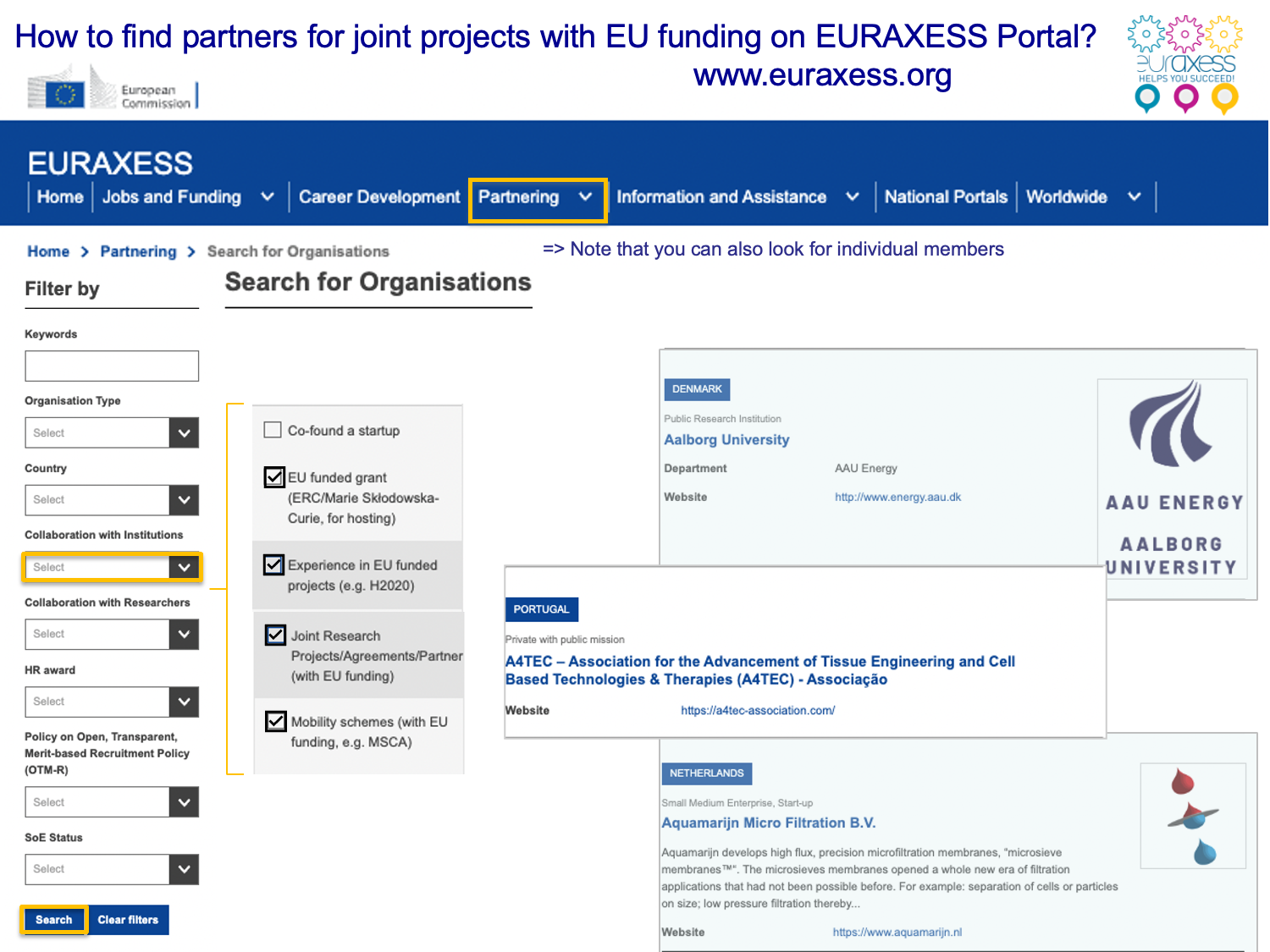
3- MSCA-Net matchmaking platform
MSCA-NET Platform
The MSCA matchmaking platform brings together fellows, companies, supervisors, NGOs and Academic Institutions from a large number of European countries and beyond. This is a unique opportunity to generate new contacts and future successful projects in the upcoming MSCA calls for 2023 and 2024.
Using this platform, you will be able to publish your researchers´profile, your company profile and offer your hosting arrangements to attract talent or participate in Doctoral Networks, Staff Exchanges and COFUND proposals.
4- CORDIS (Finding participating organisations in past projects)
CORDIS is the primary source of results from EU-funded projects since 1990. You can browse through their database to find past projects in your field of interest and check which institutions participated in them. Use the filters to refine your search.
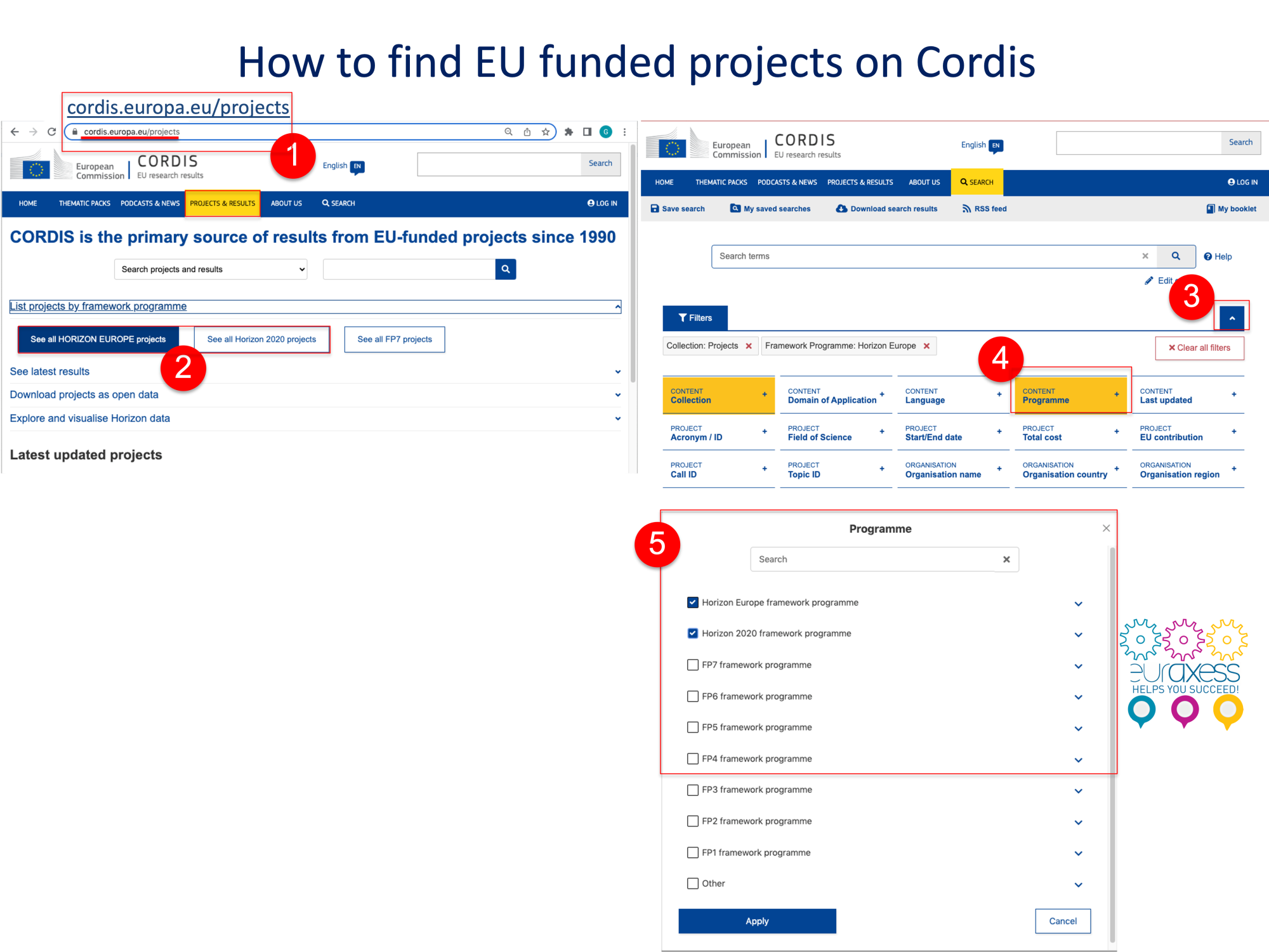
5- Thematic European networks of National Contact Points
You can also contact the European network of National Contact Points (NCPs) for your topic of interest. It is the main structure to provide guidance, practical information and assistance on all aspects of participation in Horizon Europe. They organise information sessions and brokerage events that are excellent opportunities to meet potential partners.
The following networks of NCPs under Horizon Europe are currently active:
European Innovation Council (EIC) and the European Innovation Ecosystems (EIE)
website: access2eic.eu
![]()
Culture, Creativity and Inclusive Society (CL2), former Social sciences and humanities (SSH) NCP Network
website: https://www.net4society.eu/
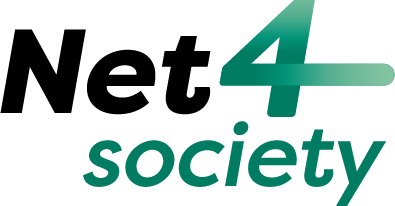
Widening participation and strengthening the European Research Area
website: https://www.ncpwideranet.eu/

GREENET - NCP Network for Cluster 5 :Climate, Energy and Mobility
website: https://horizoneuropencpportal.eu/cluster-5
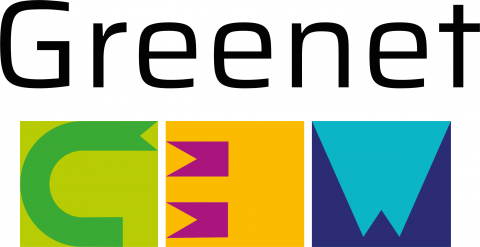
CARE4BIO - NCP network for Cluster 6: Food, Bioeconomy, Natural Resources, Agriculture and Environment
website: https://horizoneuropencpportal.eu/cluster-6
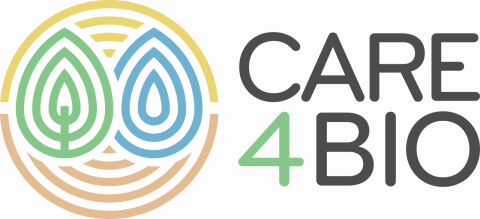
6- ENRICH matchmaking for Research, Technology & Innovation start-ups and companies
The ENRICH in Latin America & The Caribbean (LAC) offers a matchmaking tool for virtual direct contacts and business initiation among RTI focussed start-ups, companies, soft landing hubs, and other organisations between LAC Region and Europe.
ENRICH matchmaking
May also be useful:
EURAXESS LAC held an interview with Dr. Corina Abraham-Barna, National Contact Point for Marie Skłodowska-Curie Actions, on Participating in H2020 research consortia: How to find European partners?. The advice she gave are also valid for Horizon Europe. It contains valuable information on this subject. She addressed for example the following questions:
How can a lab or a research group in Latin America and the Caribbean become involved in an H2020 research consortium?
How could researchers in LAC build up their research network?
Which are the platforms or tools that researchers in Latin America and the Caribbean should consult to find European research partners?
Which would be the steps for being involved in a H2020 research project?


